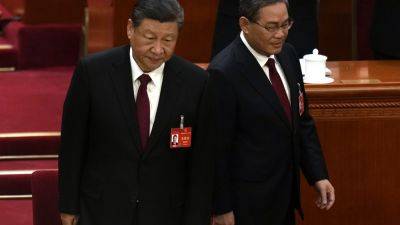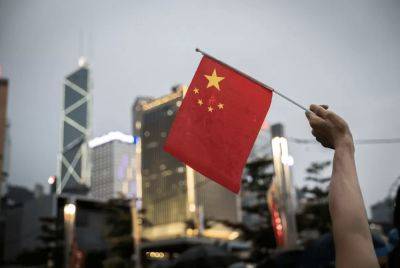At start of Lunar Year of the Dragon, China seeks to assert its own interpretation of cultural icon
BEIJING (AP) — At the start of the Lunar Year of the Dragon, China is seeking to assert its own interpretation of the cultural icon that dates back centuries in both Eastern and Western cultures.
The Lunar New Year holiday that began on Feb. 10 is celebrated in countries across Asia and among communities abroad, although China continues to insist that it be called Chinese New Year.
Each year is named after an animal in the Chinese zodiac, with this year being that of the dragon. Chinese state media this year have pushed for the use of “loong,” a version of the anglicization of “dragon,” as part of an effort to emphasize the distinction between the traditional Chinese view of the mythological creature as a symbol of good fortune and the Western view of it as a fire-breathing harbinger of danger and adventure.
“In traditional Chinese culture, the loong symbolizes strength, auspiciousness and extraordinary abilities, embodying wishes for favorable weather, peace and well-being,” the official Xinhua News Agency said Thursday.
“According to experts, loong-themed cultural relics from various periods in China convey the innovative, inclusive, cohesive and striving spirit of the Chinese nation,” Xinhua said.
References to dragons are found throughout the world and there is no obvious indication that they originated in China.
Though previously embraced as a national symbol, the dragon was banished after the Communist Party under Mao Zedong seized power in 1949, replacing it with the hammer and sickle and the five stars on the national flag.
Under authoritarian leader and ardent nationalist Xi Jinping, the government has striven to assert China’s power in international affairs, including through culture and language.







